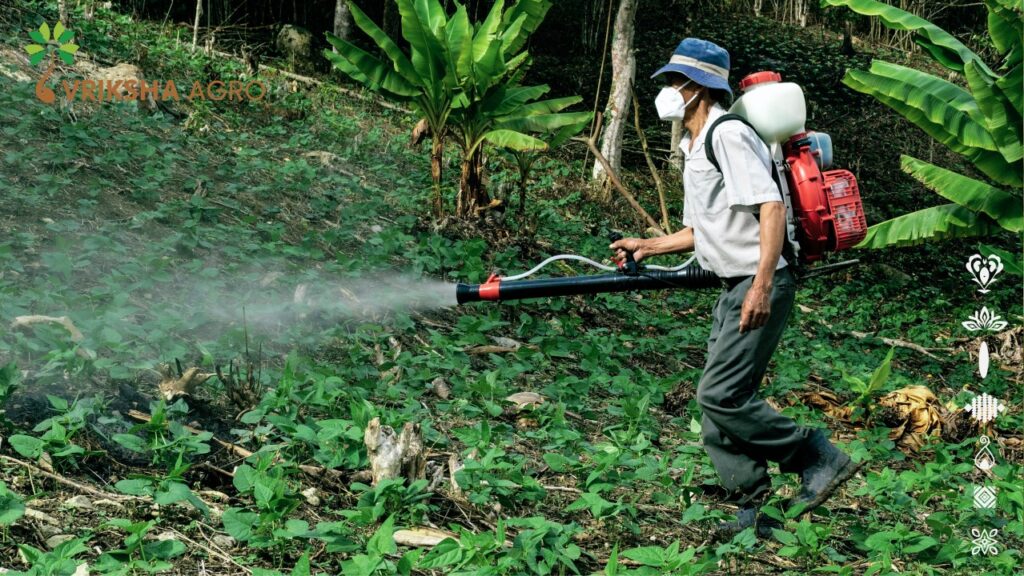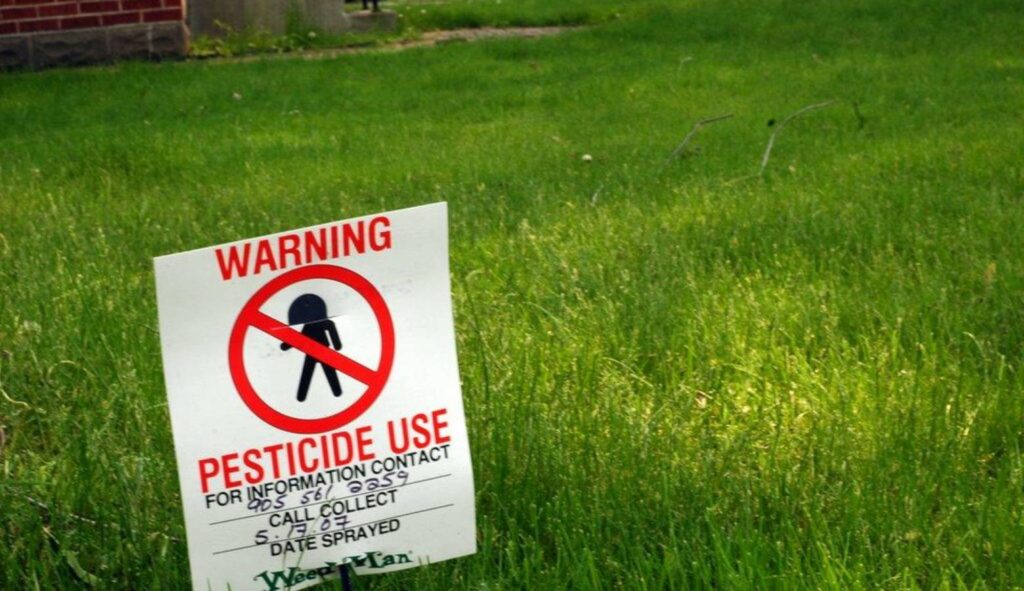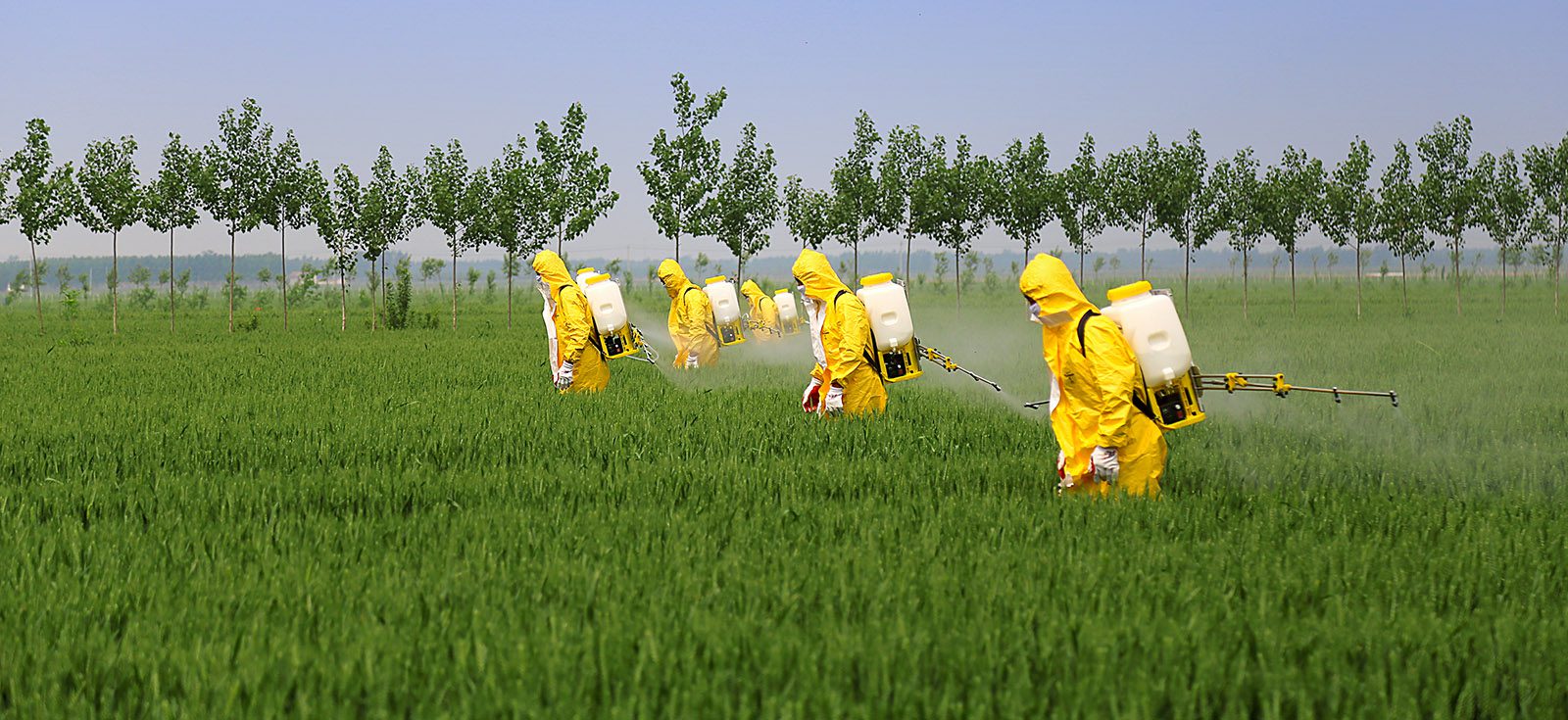Food & Climate
Egypt has a plan is currently being implemented to reduce consumption of chemical pesticides and replace them with biological pesticides.
The African country targets reducing chemical pesticides 50% by 2030, according to the minister of Agriculture and Land Reclamation, Alaa Farouk, during launching the Sustainable Pesticide Management Framework Project in Egypt.
The project has been adopted by international Crop Life in coordination with the Agricultural Pesticides Committee, according to a statement that “Food & Climate” platform received.
Farouk said that the amount of pesticides used in agricultural lands in Egypt is estimated at about 10 thousand tons, while 5 million tons of pesticides are produced and manufactured globally, equivalent to 60 billion dollars, of which more than 7% are adulterated pesticides that are not suitable for use and harm human health.
Pesticides contribute significantly to greenhouse gas (GHG) emissions while, at the same time, climate change is expected to increase pesticide applications, according to PAN Organizing Co-Director Asha Sharma, Senior Scientist Margaret Reeves, and Policy Fellow Calista Washburn.
GHG emissions of pesticides
Very few studies calculate the GHG emissions of pesticide use over the full life-cycle (production, storage, shipment, application, breakdown) of the chemicals, which likely causes underestimates of true impact.
In terms of production, 99% of all synthetic chemicals – including pesticides – are derived from fossil fuels. But they receive much less attention than nitrogen fertilizer, another key agricultural chemical input that creates dangerous levels of GHG emissions. Research has shown that the manufacture of one kilogram of pesticide requires, on average, about 10 times more energy than one kilogram of nitrogen fertilizer!
Pesticides can also release GHG emissions after their application, with fumigant pesticides shown to significantly increase nitrous oxide production in soils. Many pesticides lead to the production of ground-level ozone, a greenhouse gas harmful to both humans and plants.
At the same time pesticide use is driving climate change, research shows the effects of our changing climate will likely lead to increased use of synthetic pesticides.
This because rising temperatures, heat stress and altered rain patterns are leading to decreased crop resilience. For example, drought conditions weaken plants’ natural defenses and change their biology, leaving them more vulnerable to pests.
And rising temperatures will likely stimulate insect population growth in certain regions. Scientists also expect to see continued shifts in insects’ geographic regions and potential to survive winter.

Because they have more diversity in their gene pool and a greater ability to acclimate, weeds are more resilient to climate change than cultivated crops. Research suggests weeds will have an increased ability to outcompete agricultural crops in many regions, leading to declining yields.
No registration before testing
The Egyptian minister pointed out that it was directed that no pesticide should be registered except after field testing under Egyptian conditions and conducting a conformity test for the natural and chemical properties and accompanying impurities, while measuring the extent of safety for the health of citizens and the Egyptian environment before using it.
He added that campaigns were launched to monitor pesticides circulating in the markets, resulting in 157 violation reports and the seizure of 65 tons of pesticides that do not conform to specifications and are prohibited from being traded during the past three months.
He indicated that the technical recommendations book for combating agricultural pests was issued this year (2024) and more than 2,000 copies were distributed free of charge to agricultural cooperatives in addition to making them available as an electronic copy.

It was also directed to continue implementing the national program to monitor pesticide residues in vegetables and fruits in local markets, and to conduct the required analyses in the ministry’s laboratories to verify the percentages permitted for trading and consumption, as well as tightening control measures to prevent fraud and smuggling of pesticides in cooperation with the relevant authorities.

